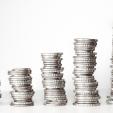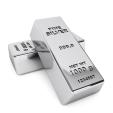U.S. Stocks Drop While Treasuries Gain on Spending Data
Los Angeles (June 26) U.S. stocks dropped as data showed consumer spending grew less than forecast in May and a Federal Reserve official said interest rates may rise by March. Treasuries climbed with emerging-market equities and oil slid.
The Standard & Poor’s 500 Index slipped 0.5 percent to 1,950.67 at 12:58 p.m. in New York. The yield on 10-year Treasuries fell four basis points to 2.52 percent, the lowest level in three weeks. The Stoxx Europe 600 Index declined less than 0.1 percent, erasing an earlier advance of 0.3 percent. The MSCI Emerging Markets Index jumped 0.5 percent. Oil futures slid 1 percent and gold lost 0.5 percent.
Fed Bank of St. Louis President James Bullard predicted the central bank’s first interest-rate rise will happen in the first quarter of next year as unemployment falls and inflation quickens. U.S. consumer spending grew less than forecast in May while jobless claims decreased last week, reports showed today. Data yesterday indicated America’s economy shrank the most in five years last quarter, underscoring the need for the Fed to support any recovery with accommodative monetary policy.
“There’s a multitude of factors driving the market lower,” Joe Bell, senior equity analyst at Cincinnati-based Schaeffer’s Investment Research Inc., said in a phone interview. “You’re seeing the Fed comments from Bullard come out, a market that’s been on a low-volatility uptrend and uncertainty from a geopolitical standpoint over in Iraq. It’s a perfect storm for different parties to take some money off the table.”
Photographer: Pete Marovich/Bloomberg
Janet Yellen, chair of the U.S. Federal Reserve. Yellen said last week that rates will... Read More
Consumer purchases, which account for about 70 percent of the economy, climbed 0.2 percent after being little changed in April, Commerce Department figures showed. The median forecast of 76 economists in a Bloomberg survey called for a 0.4 percent rise. Incomes advanced 0.4 percent and the saving rate increased to an eight-month high.
Inflation Gauge
The price measure tied to consumer spending watched by the Fed rose 0.2 percent in May from the prior month and was up 1.8 percent from a year earlier. That was the biggest 12-month increase since October 2012. The central bank’s goal is for inflation to climb at around 2 percent.
Separate data showed fewer Americans filed applications for unemployment benefits last week, a sign of steady progress in the labor market.
Speaking on Fox Business Network, Bullard said the U.S. jobless rate may fall below 6 percent and inflation rise near 2 percent by the end of this year. He said markets may not be fully appreciating how close the Fed is to reaching it goals.
Treasury Yields
Treasuries rose for a third day on speculation interest rates will remain lower for longer amid the mixed economic signals.
“The numbers were soft to sort of OK,” said Jim Vogel, head of agency-debt research at FTN Financial in Memphis, Tennessee. “There’s been a re-evaluation of where 2014 growth will come out and the implications for 2015 for when the Fed’s going to be active.”
The S&P 500 rose 0.5 percent yesterday as investors shrugged off data showing U.S. gross domestic product shrank 2.9 percent in the first quarter, the worst reading since 2009. The benchmark index closed at a record last week on speculation the economy is recovering from extreme weather at the beginning of the year. The gauge is up 1.4 percent in June, for its fifth straight monthly increase, and 4.2 percent for the quarter.
Fed Chair Janet Yellen last week said accommodative monetary policy, rising property and equity prices and the improving global economy should lead to above-trend growth. She emphasized the need to put more Americans back to work and downplayed concerns about asset-price bubbles and incipient inflation, while pledging to keep interest rates low for a prolonged time.
Alcoa Deal
Bed Bath & Beyond Inc. tumbled 8 percent today after forecasting profit that was less than analysts’ estimated amid competition from online retailers. Alcoa Inc. gained 2.2 percent as the largest U.S. aluminum producer agreed to buy U.K. aerospace-components maker Firth Rixson Ltd. for about $2.5 billion in stock and cash.
Chicago Board Options Exchange Volatility Index, known as the VIX, rose 3.1 percent to 11.95. It closed June 18 at its lowest level since 2007. For 48 days, the S&P 500 has failed to post a gain or loss exceeding 1 percent, the longest stretch since 1995.
European stocks declined for a fifth day as the disappointing U.S. data outweighed increased mergers-and-acquisitions activity. The Stoxx 600 is 2.2 percent below a six-year high reached on June 10.
Barclays Slumps
Barclays Plc, which was sued in New York over its private trading venue, slipped 6.5 percent to its lowest price since November 2012. Dialog Semiconductor Plc climbed 2 percent after saying it is exploring a merger with AMS AG. London Stock Exchange Group Plc (LSE) rose 6.1 percent after agreeing to buy Frank Russell Co. for $2.7 billion.
The MSCI Emerging Markets Index, which closed yesterday at the lowest level since June 5, has gained 5.3 percent this quarter, headed for the biggest advance since the period ended in September 2012.
The Shanghai Composite Index (SHCOMP) added 0.7 percent to a one-week high, while the Hang Seng China Enterprises Index of mainland companies listed in Hong Kong climbed 1.5 percent, rebounding from a four-week low.
China’s first companies to go public in four months jumped 44 percent on their first day of trading. Shandong Longda Meat Foodstuff Co., Wuxi Xuelang Environmental Technology Co. and Feitian Technologies Co. surged by the maximum limit in Shenzhen after each of their initial public offerings were oversubscribed by at least 120 times.
Biggest Risk
The pound gained against all but four of its 31 major counterparts. Bank of England governor Mark Carney said the biggest risks to Britain’s recovery stem from the housing market as he introduced measures to limit riskier mortgages and prevent an unsustainable buildup of consumer debt.
The announcement is the biggest recent effort by a major central bank to tackle the threat of an asset bubble and avoid a repeat of the 2008 financial crisis.
The dollar weakened 0.2 percent to 101.64 yen and added 0.1 percent to $1.3613 versus the euro.
Gold lost 0.5 percent for the first drop in seven sessions.
Crude oil fell on signs that the insurgency in Iraq won’t curb output and as U.S. stockpiles climbed. West Texas Intermediate tumbled 1 percent to $105.44 a barrel. Futures are still up 7.2 percent this year.
Iraq’s crude exports will rise next month, Oil Minister Abdul Kareem al-Luaibi said yesterday. Government forces repelled an attack by the Sunni Islamic State in Iraq and the Levant on the Baiji refinery north of Baghdad. U.S. crude stockpiles rose by 1.74 million barrels to 388.1 million last week, the Energy Information Administration said yesterday.
Source: Bloomberg













